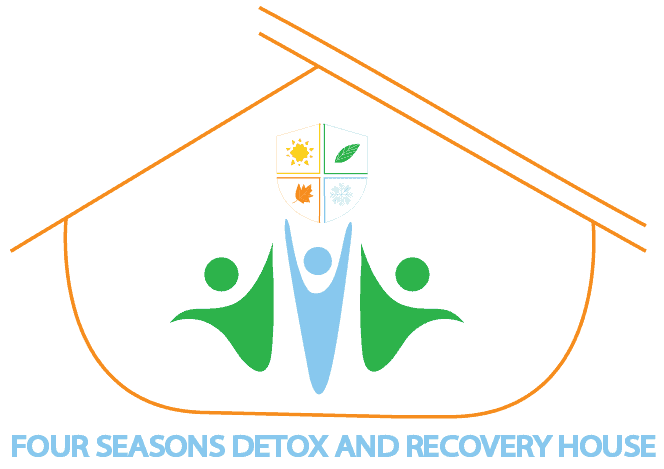Alcoholism is a complex and chronic disease that affects millions of individuals worldwide. It is characterized by a physical and psychological dependence on alcohol, leading to negative consequences in various aspects of life. One of the most challenging situations is when an alcoholic refuses to acknowledge their problem and does not want help. This denial can be frustrating and disheartening for friends and family members who are concerned about their loved one’s well-being. However, it is essential to understand that denial is a common defense mechanism employed by individuals struggling with addiction.
When supporting an alcoholic who doesn’t want help, it is crucial to approach the situation with empathy and compassion. Educating yourself about alcoholism and its effects can help you better understand the challenges your loved one is facing. By recognizing that alcoholism is a disease, you can separate the person from their addiction and avoid blaming or shaming them. Remember that addiction is not a choice; it is a chronic brain disorder that requires professional treatment.
The importance of self-care when supporting an alcoholic
Supporting an alcoholic who doesn’t want help can be emotionally draining and overwhelming. It is essential to prioritize your own well-being and practice self-care during this challenging time. Neglecting your needs can lead to burnout and hinder your ability to provide effective support. Here are some strategies to take care of yourself while supporting an alcoholic:
Set boundaries: Establish clear boundaries and communicate them to the alcoholic. Boundaries can protect your emotional and physical well-being and help maintain a healthy relationship. For example, you may decide not to engage in arguments when the person is intoxicated or avoid enabling behaviors such as providing money for alcohol.
- Seek support: Reach out to friends, family, or support groups who understand what you are going through. Sharing your feelings and experiences with others who have been in similar situations can provide valuable emotional support and guidance. Support groups like Al-Anon or therapy sessions can offer a safe space to express your concerns and learn from others.
- Practice self-care: Engage in activities that bring you joy and reduce stress. This can include exercise, meditation, hobbies, or spending time with loved ones. Taking care of your physical and mental health will help you remain resilient and better equipped to handle the challenges of supporting an alcoholic.
- Remember, supporting an alcoholic who doesn’t want help is a long-term process, and it is essential to prioritize your well-being throughout the journey.
Communication strategies for talking to an alcoholic who doesn’t want help
Effective communication is crucial when attempting to support an alcoholic who is resistant to help. Here are some strategies to consider when engaging in conversations with them:
Choose the right time: Find a moment when the person is sober and relatively calm to initiate a conversation. Avoid confrontations while they are under the influence, as it may lead to heightened emotions and defensiveness.
- Express concern without judgment: Use “I” statements to express your worries and feelings rather than placing blame or criticizing them. For instance, say, “I am concerned about your health and well-being” instead of “You need to stop drinking.”
- Listen actively: Give the person an opportunity to express their thoughts and feelings. Avoid interrupting or dismissing their concerns. Active listening shows that you value their perspective, even if you disagree.
- Offer support, not solutions: Instead of trying to convince them to get help, emphasize that you are there to support them. Let them know that you are willing to help them find resources or accompany them to treatment if they are ready.
- Remember, it may take time for an alcoholic to acknowledge the severity of their addiction and accept help. Be patient, consistent, and supportive in your communication efforts.
Setting boundaries and consequences
When supporting an alcoholic who doesn’t want help, setting boundaries and consequences is crucial for both your well-being and theirs. Boundaries provide structure and clarity, while consequences help enforce those boundaries. Here are some steps to consider:
Establish clear boundaries: Communicate your expectations regarding their behavior, such as not drinking in your presence or not engaging in destructive behaviors. Be firm and consistent in enforcing these boundaries.
- Define consequences: Clearly outline the consequences that will result from crossing the established boundaries. Consequences should be reasonable, proportionate, and enforceable. For example, you may decide to leave the house if the person becomes verbally abusive or refuses to seek treatment.
- Follow through: It is essential to follow through with the consequences you have defined. This demonstrates that you are serious about maintaining the boundaries and reinforces the need for change.
- Setting boundaries and consequences can be challenging, but they are essential for maintaining your well-being and encouraging the alcoholic to consider seeking help. Remember to communicate these boundaries in a calm and assertive manner, emphasizing that they are for the benefit of both parties involved.
Educating yourself about alcoholism and treatment options
To effectively support an alcoholic who doesn’t want help, it is crucial to educate yourself about alcoholism and available treatment options. Understanding the nature of addiction and the recovery process can help you provide informed support. Here are some steps to educate yourself:
Read reliable sources: Start by reading books, articles, and websites from reputable sources that provide accurate information about alcoholism. Look for resources written by experts in the field of addiction medicine or organizations specializing in substance abuse.
- Attend support groups or workshops: Participating in support groups or workshops for families and friends of alcoholics can provide valuable insights and knowledge about addiction and recovery. These groups often feature guest speakers who can provide information on treatment options and strategies for supporting an alcoholic.
- Consult with professionals: Reach out to addiction counselors, therapists, or healthcare professionals who specialize in alcoholism. They can provide personalized guidance, answer your questions, and offer recommendations based on your specific situation.
- By educating yourself about alcoholism, you will be better equipped to understand the challenges faced by an alcoholic who doesn’t want help. This knowledge will enable you to provide more effective support and encourage them to consider treatment options.
Seeking professional help and intervention
When supporting an alcoholic who doesn’t want help, it may become necessary to seek professional assistance and intervention. Professional help can provide the necessary expertise and guidance to address the complex issues surrounding alcoholism. Here are some options to consider:
Individual therapy: Encourage the alcoholic to seek individual therapy with a counselor or therapist specializing in addiction. Therapy can help them explore the underlying causes of their addiction, develop coping strategies, and motivate them to seek treatment.
- Intervention: In some cases, an intervention may be necessary to help the alcoholic recognize the severity of their addiction and the need for help. An intervention involves a structured meeting with the support of a professional interventionist who guides the conversation and encourages the person to seek treatment.
- Rehabilitation programs: Research and explore different rehabilitation programs, such as inpatient or outpatient treatment centers, detoxification facilities, or sober living homes. These programs provide a supportive and structured environment for individuals struggling with alcoholism to begin their recovery journey.
- Remember, seeking professional help and intervention should be approached with sensitivity and respect. Encourage the person to consider these options, but ultimately, the decision to seek treatment lies with them.
Finding support for yourself as a caregiver
Supporting an alcoholic who doesn’t want help can be emotionally challenging and overwhelming. It is essential to seek support for yourself as a caregiver to navigate these difficulties. Here are some resources to consider:
Support groups: Joining support groups specifically designed for family members and friends of alcoholics can provide a safe space to share experiences, receive guidance, and find emotional support. Groups like Al-Anon or Nar-Anon offer meetings both in person and online.
- Therapy or counseling: Engaging in therapy or counseling sessions can provide a dedicated space for you to process your emotions, gain insight, and develop coping strategies. A mental health professional can help you navigate the complexities of supporting an alcoholic who doesn’t want help.
- Online forums and communities: Numerous online forums and communities exist where individuals can connect with others facing similar challenges. These platforms provide a space to ask questions, share experiences, and find encouragement from people who understand what you are going through.
- Remember, seeking support for yourself is not a sign of weakness but a crucial step in maintaining your own well-being while supporting an alcoholic.
Alternative approaches to helping an alcoholic who doesn’t want help
While traditional treatment approaches may not be effective for every alcoholic who doesn’t want help, alternative approaches can sometimes provide additional options. Here are some alternative approaches to consider:
Motivational interviewing: Motivational interviewing is a counseling technique that focuses on guiding individuals to explore their motivations for change. It emphasizes empathy, understanding, and collaboration rather than confrontation. This approach can be useful when supporting an alcoholic who is resistant to help.
- Harm reduction strategies: Harm reduction strategies aim to minimize the negative consequences of alcohol use without requiring immediate abstinence. These strategies may include setting limits on alcohol consumption, encouraging safer drinking practices, and providing resources for reducing harm associated with alcohol use.
- Holistic approaches: Holistic approaches focus on addressing the individual’s physical, mental, and spiritual well-being. This can include practices such as meditation, yoga, acupuncture, or herbal remedies. While these approaches may not directly address alcoholism, they can contribute to overall wellness and support the individual’s journey towards recovery.
- It is essential to approach alternative approaches with caution and consult with professionals to determine their suitability for the individual’s specific situation.
Resources and organizations for supporting alcoholics and their families
When supporting an alcoholic who doesn’t want help, it is crucial to access resources and organizations that can provide guidance, information, and support. Here are some resources to consider:
Al-Anon: Al-Anon is a support group for friends and family members of alcoholics. They provide meetings, literature, and online resources to help individuals navigate the challenges of supporting an alcoholic. Visit their website for more information and to find a meeting near you.
- National Institute on Alcohol Abuse and Alcoholism (NIAAA): The NIAAA is a reputable source of information on alcoholism and its effects. They offer resources, research, and treatment options for individuals struggling with alcohol use disorder and their families.
- Substance Abuse and Mental Health Services Administration (SAMHSA): SAMHSA provides a comprehensive directory of substance abuse treatment facilities across the United States. Their website offers information on treatment options, support services, and recovery resources.
- Remember, reaching out for help is a sign of strength, and these resources are available to support you in your journey of supporting an alcoholic who doesn’t want help.
Conclusion
Supporting an alcoholic who doesn’t want help can be a challenging and emotionally draining experience. It is essential to approach the situation with empathy, understanding, and patience. By educating yourself about alcoholism, setting boundaries, seeking professional help, and prioritizing self-care, you can provide meaningful support to your loved one while maintaining your own well-being. Remember, recovery is a personal journey, and the decision to seek help ultimately lies with the individual. Encourage them to consider treatment options, but respect their autonomy and choices.






